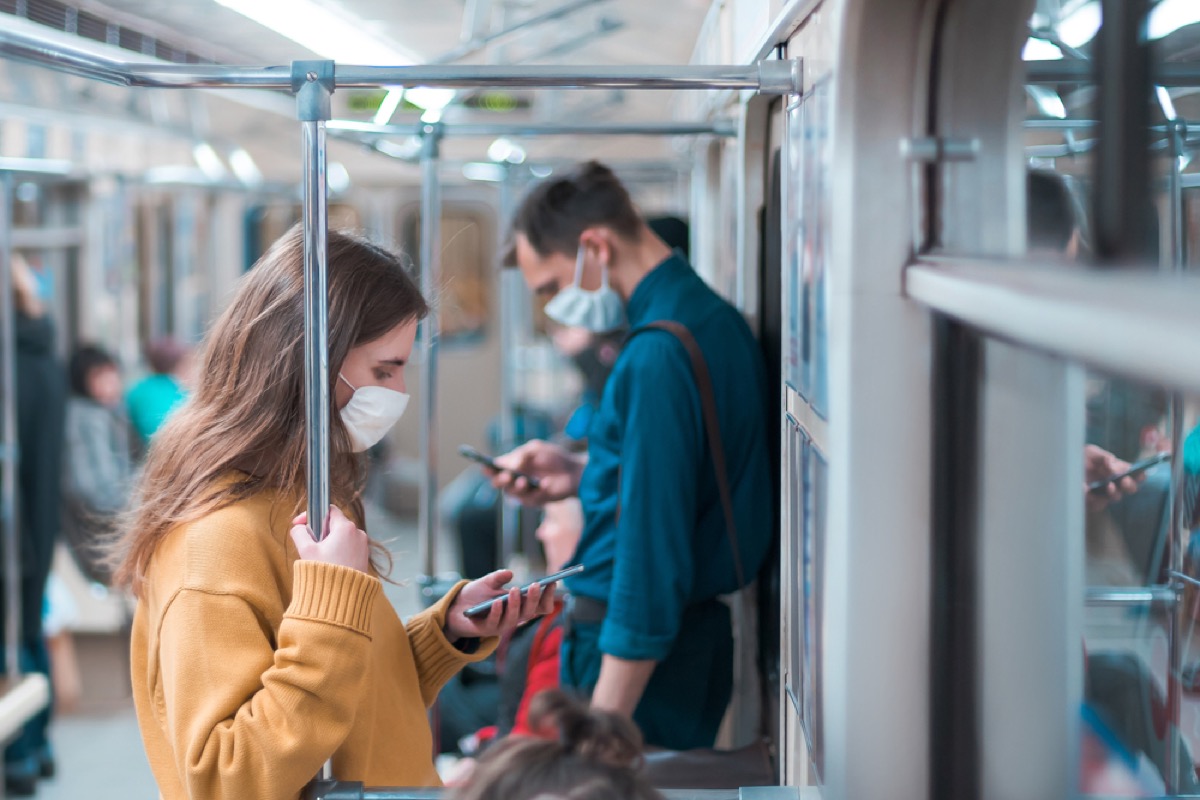“The recycled air on subway cars is replaced on average at least 18 times an hour, far higher than the recommended exchange rate for offices, which is six to eight times an hour, or classrooms, which is three to four times an hour,” according to The Times. That means the air in New York City subway cars is cleaned three times more frequently than the air in restaurants and six times more than the air in schools. The ventilation units in the majority of subway cars replace air inside the car from outside, according to The Times. “Air is constantly sucked up through vents, cooled and filtered before being pushed back through ducts,” the newspaper explains. “Outside air is pulled into the system, combined with the existing mix and released into the car through the duct panels.” Filters in these ventilation systems are designed in such a way to increase the collection of potentially germ-filled air. An April study from scientists at the University of Colorado, Boulder, found that ventilation systems that are enhanced by particle filtration are the most effective at keeping people safe from COVID-19. The reason why these filters are so important is because the virus can spread through contaminated droplets in the air—so if one commuter exhales aerosolized droplets that contain the virus, another traveler can inhale them and catch the disease. But the continuous airflow through the vents in subway cars significantly limits virus particles from building up and therefore, prevents them from infecting other people.“ae0fcc31ae342fd3a1346ebb1f342fcb Highly trafficked and poorly ventilated indoor locations are one of the worst places to be amid the pandemic. A June study published by the National Institute of Health found that “airborne transmission plays a profound role” in the spread of COVID-19, particularly in confined spaces. That’s why churches and bars share the same high risk for spreading the virus, and that’s where proper ventilation comes into play. RELATED: For more up-to-date information, sign up for our daily newsletter. In a report on the importance of ventilation, The Atlantic paraphrased Virginia Tech professor Linsey Marr, PhD, noting, “if aerosols are crucial, we should focus as much on ventilation as we do on distancing, masks, and hand-washing, which every expert agrees are important. Crowded subway cars were at one time thought to be a chief reason for the spread of the outbreak in New York City, but according to this latest report, they may not be as dangerous as we previously thought. And for more risky behaviors to avoid, check out This Is How High Your COVID Risk Is Based on Your Everyday Behavior.
